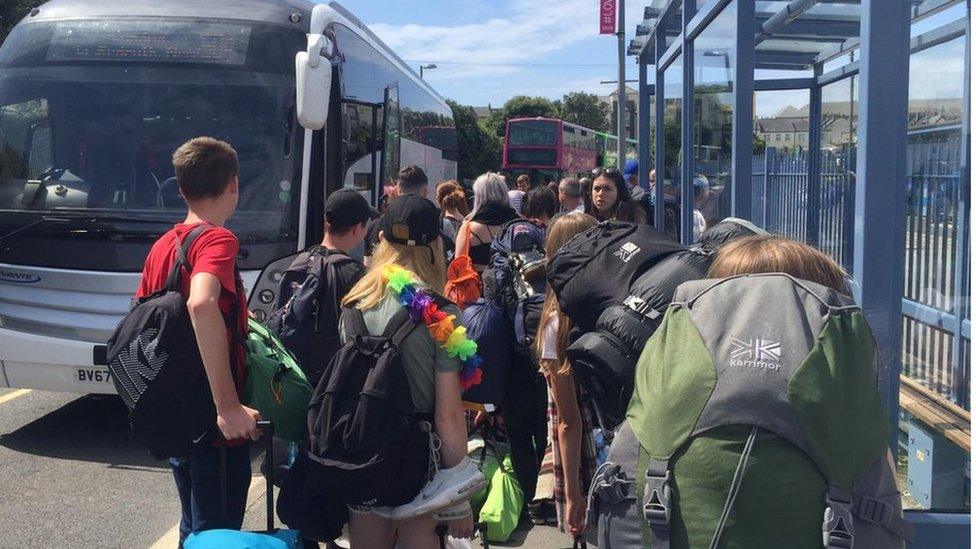The joy of the backyard festival
- Published
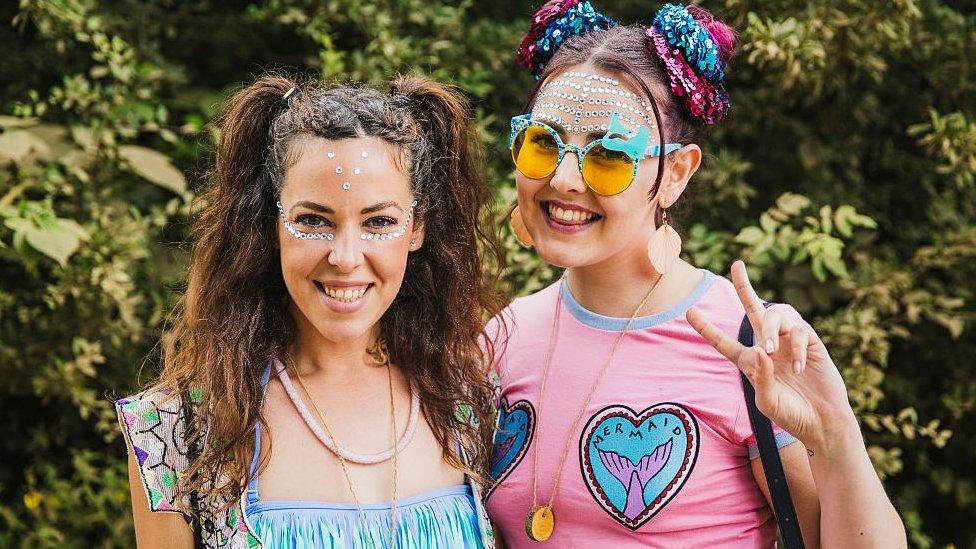
Part of the appeal of the grassroots events is the friendships that form, according to one promoter
They might not be able to command headliners like Kylie or The Killers, but the lack of crowds, mud-baths and endless toilet queues has seen a trend emerge for home-grown festivals that begin in villages and backyards.
Bunny is a tiny village in Nottinghamshire known almost solely for its unusual name. It's also home to Glastonbunny - a summer festival almost a decade in the making.
"It's a very quirky, artistic kind of place - a good place to start up a festival," says Izumi Featherstone, who started the event with help from neighbours.
"It's two nights and three days at the end of July when we camp out, we get two or three bands from the village performing, we've had a pizza van, the children play around us."
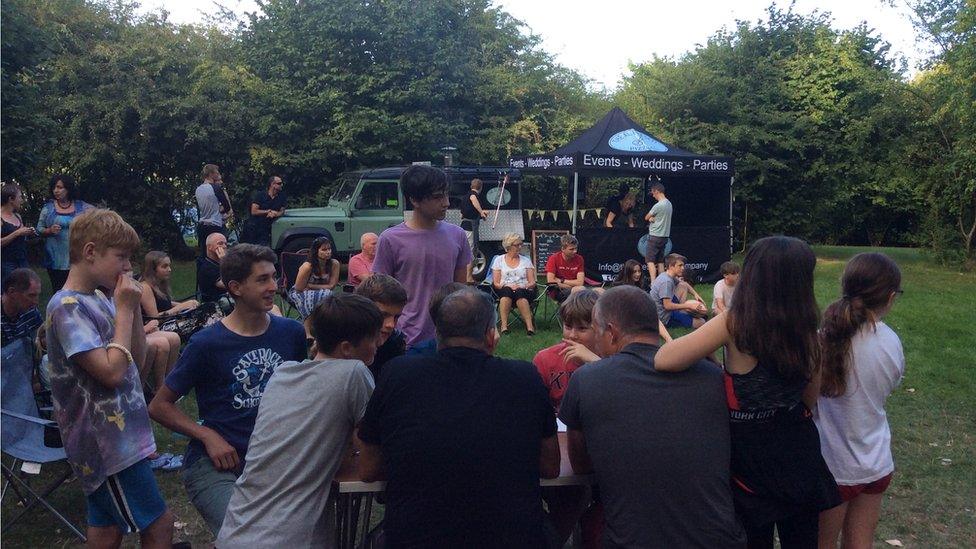
The Bunny festival is about 'finding friendship on your doorstep'
The event used to be held at the village rugby club but in recent years, its popularity has seen Bunny's residents decamp to larger sites in nearby Keyworth and Cotgrave.
"We grew each year and now we get around 150 people," says Izumi.
"It's a friendship festival. It's about getting back to basics and finding friendship on your doorstep."
For some, the friendships formed and cemented at festivals can be hugely therapeutic. Freddy Taylor, 29, found comfort in starting Lake Day after his father died.
The event continues to be held annually around the anniversary in August and turns a "very sombre day into something that's really joyous", says the advertising art director from London.
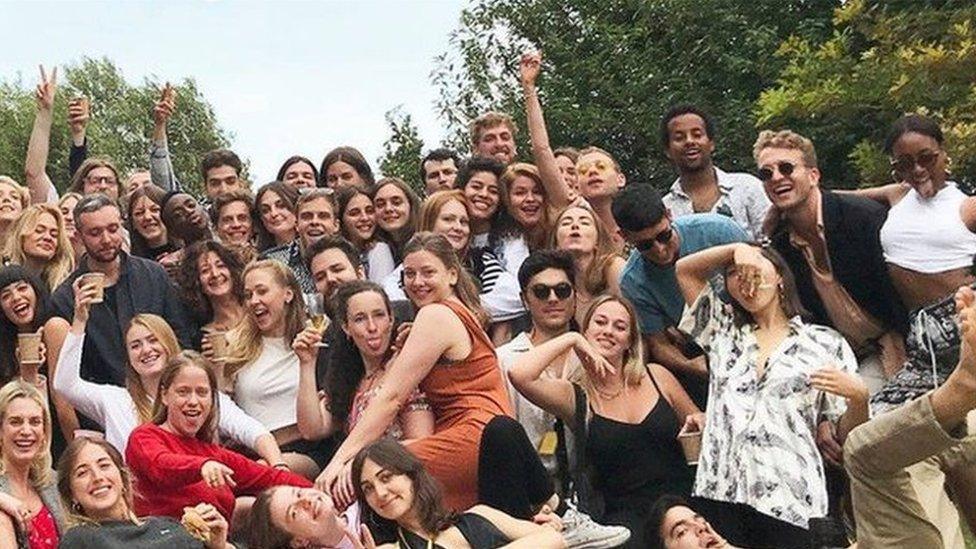
The "relaxed, open feel" of home-grown festivals appeals to Freddy
Freddy began Lake Day six years ago at Frensham Ponds, a site with a man-made beach in Surrey, but it has since moved to a farmer's field he found "through luck".
The event remains restricted to close friends and this year he is expecting about 200 people.
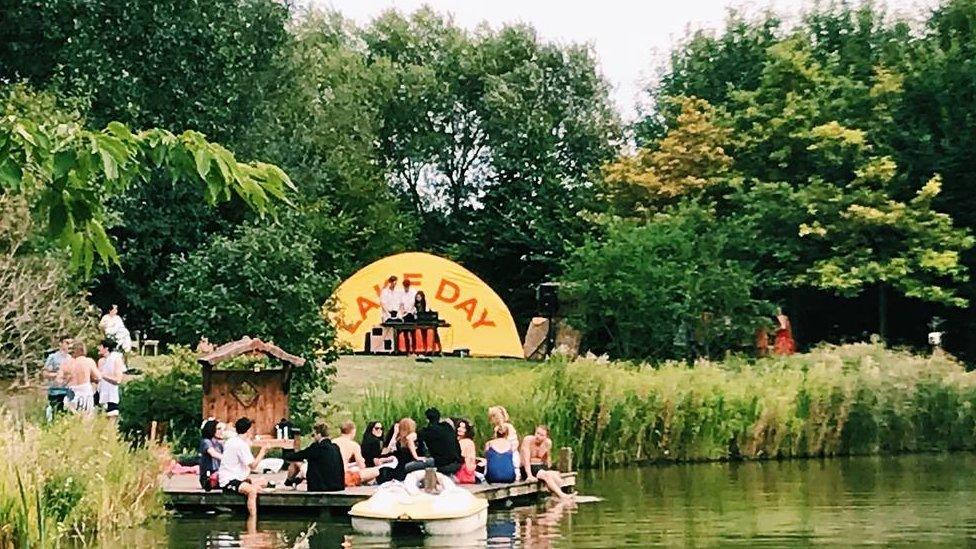
Lake Day is Freddy's way of turning a "really sombre" anniversary into a joyous event
"I want to keep it quite a small thing - just family and friends. Everyone knows everyone else and that's what's special about it," he says.
"Everyone has a role to play, whether that's doing the food or overseeing the music.
"A few of my friends are talented musicians or well-known DJs. I ask different friends to run the bar for two hours. It makes it the best day of the year."

Freddy says it feels "special" because it involves family and friends
Freddy says he is a fan of larger festivals too and has been to Glastonbury five times.
"But I can also see why there's been an increase in smaller ones," he says. "They're not about queues or feeling so crowded you can't move anywhere.
"They have a much more relaxed, informal, open feel."
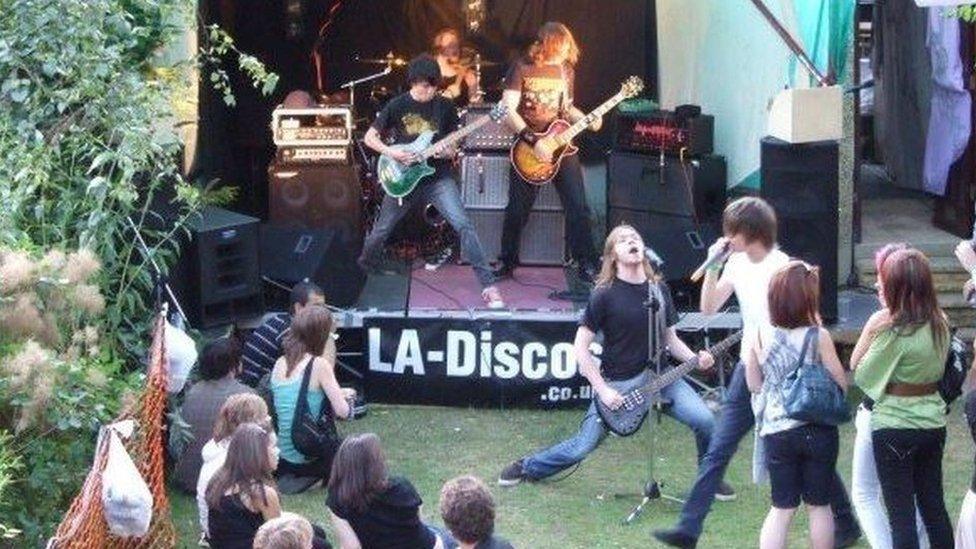
Lee Denny's first festival saw 150 people cram into his back garden
While some festivals start small and stay small, others evolve over the years to attract thousands. Lee Denny's Neverworld is one such success story.
"I was 16 and my parents had gone away on a holiday," says the former Nottingham University student, now 30. "Before they left, they told me, 'No house parties'."
"The thing is, we thought we were geniuses by holding a festival in the back garden. Technically, it wasn't a party and it wasn't in the house either."
You might also be interested in:
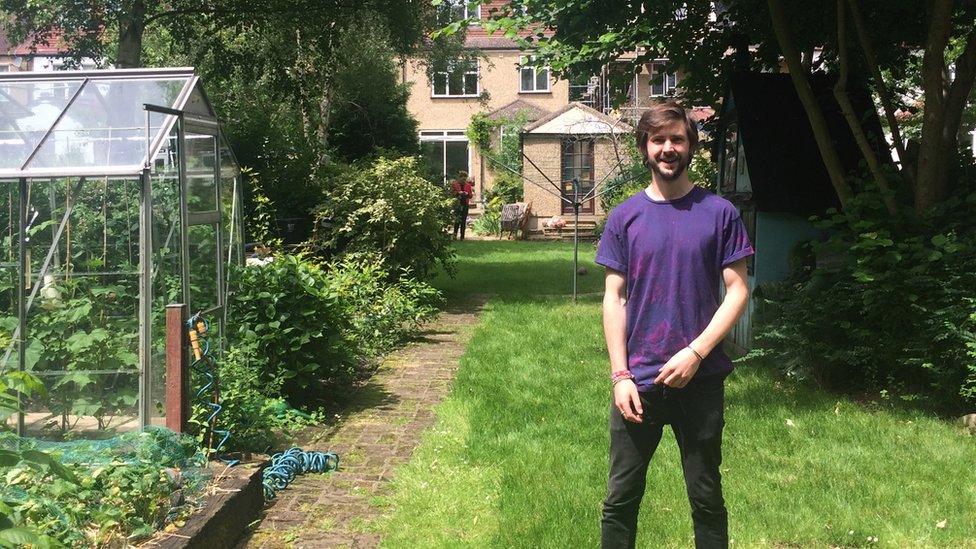
Lee returned to the garden where it all began in 2006
LeeFest - as it was then known - attracted 150 people in its first year, all crammed into a "standard, suburban garden" near Croydon.
There were 11 acts, including a school band, a clarinet player and somebody reading poetry, as well as a bar - next to the greenhouse - a barbecue and even a portable toilet.
The festival has run almost every year since, growing in size until it now attracts 6,000 people to farmland in Kent over three days.
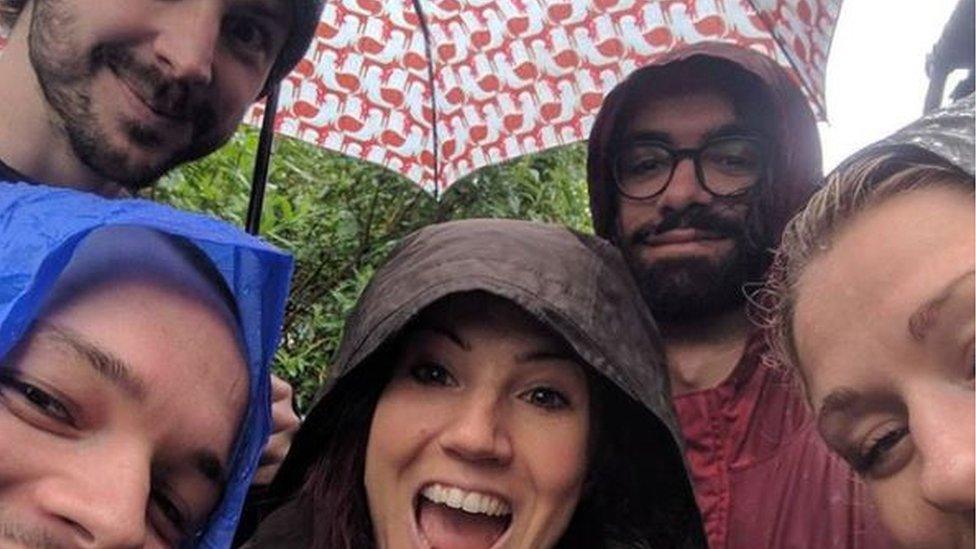
The first few years of LeeFest were "the most fun", says its creator
Even if your festival does not grow to Neverworld proportions, Lee believes staying small-scale is rewarding.
"The first few years, in the back garden, were definitely the most fun out of all of it," he says.
"It's wonderful we have a society of eccentric fools that enjoy organising these kind of events that bring people together in back gardens and local parks."
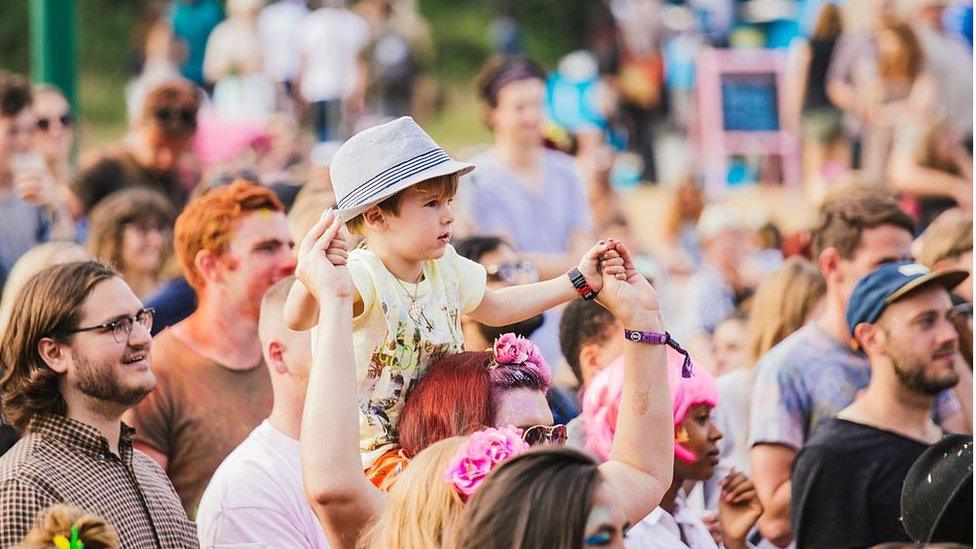
People prefer festivals with a personal, family-friendly feel, says music journalist Ian Anderson
Ian Anderson, editor of music magazine fRoots, said that as events like Glastonbury become even more mainstream, people are searching for something more intimate.
"I played at the first Glastonbury in 1970 and it had one stage - I doubt there were more than 1,000 people there and it was lovely," he says.
"There is undoubtedly still a massive community feeling at Glastonbury but a lot of big festivals are very, very commercial.
"People prefer something more personal and family-friendly, where the artists can mix with the audience."

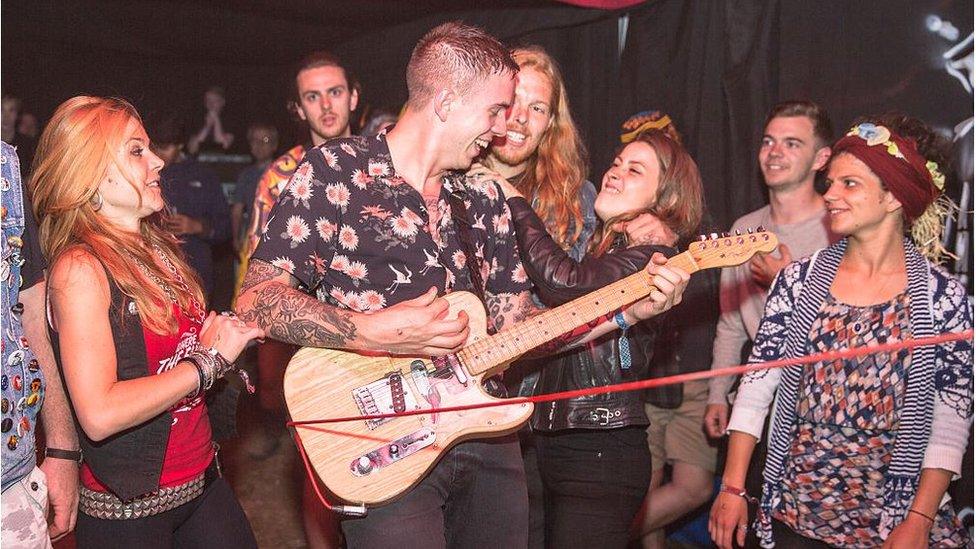
Tips for starting a backyard festival
Ensure you have a good friendship group - "don't do it on your own," advises Izumi Featherstone. "You ideally want a range of people with different skills."
Find a good location - "that's the hardest part - trying to find land that can accommodate that many people," says Freddy Taylor. You will need to consider licensing laws, if you're selling alcohol or playing music until late at night. Playing unamplified live music between 08:00 and 23:00 is exempt from licensing, as is the consumption (and non-sale) of alcohol, but check with the local authority
"Do it for yourselves primarily," says Lee Denny. "Find what it is you want to celebrate - whether it's music, arts, sports, tomato-growing - and draw up a plan of where you want everything to go - the food, the toilets, the stage. Then all the basics will be there."
Be open to inviting friends of friends. "People turn up, they don't really know each other and by the end of a couple of days they are new best friends," says Lee. "The shared purpose of a festival is a great way of breaking down barriers."
Don't mind the weather. "Sometimes it's even better if it rains because you get this beautiful camaraderie," says Lee.
Don't expect to make your fortune. "It's a labour of love," says Freddy, who says he is content to cover costs. "I try to keep costs low by allocating different responsibilities to people. Some pals own a food truck and charge people, others run the bar for a few hours at a time, carpenter pals help build the stage and music mates bring the sound equipment. It all adds to the charm."
And if you're in two minds? "Go for it anyway," says Lee. "It's so much fun. It's like creating your own little world for one weekend and it has a wonderful effect on people."

Follow BBC East Midlands on Facebook, external, on Twitter, external, or on Instagram, external. Send your story ideas to eastmidsnews@bbc.co.uk, external.
- Published17 August 2019
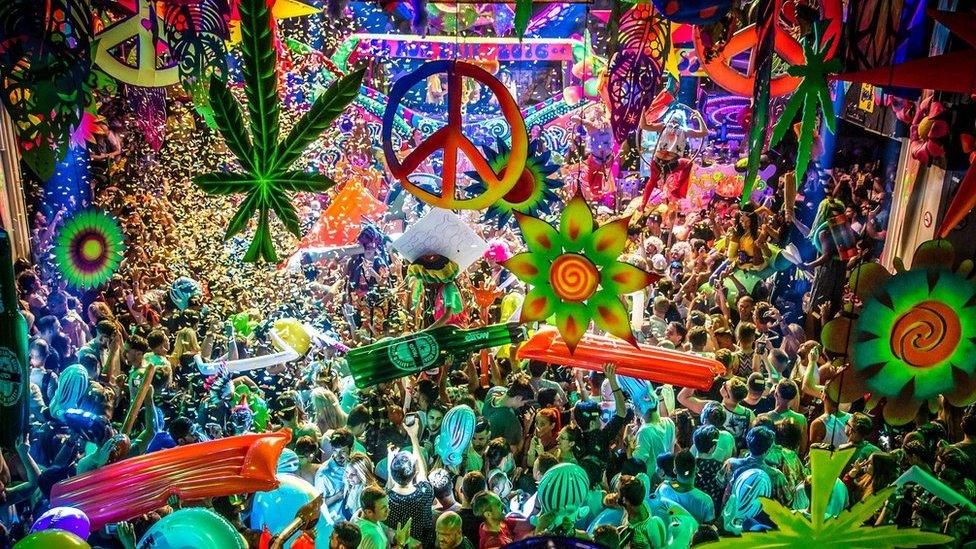
- Published15 August 2019
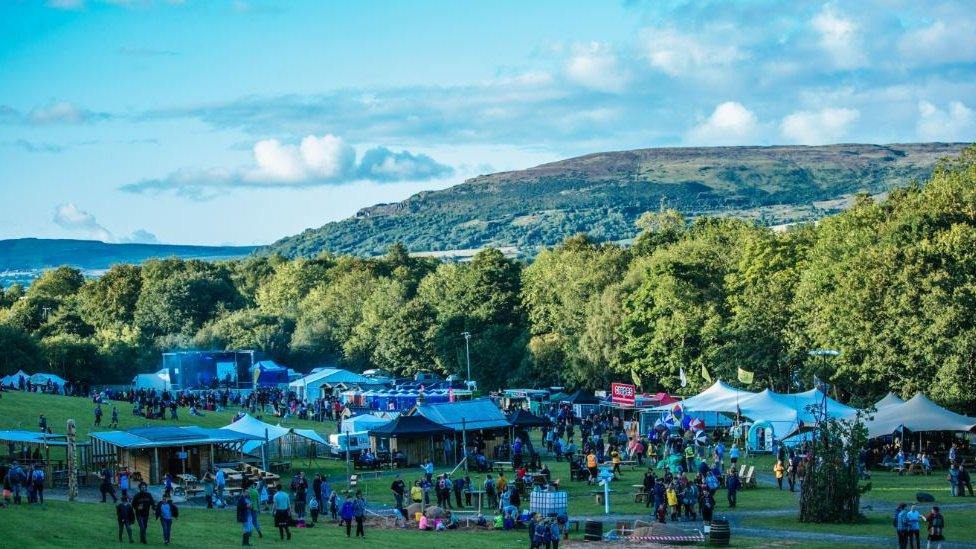
- Published7 August 2019
